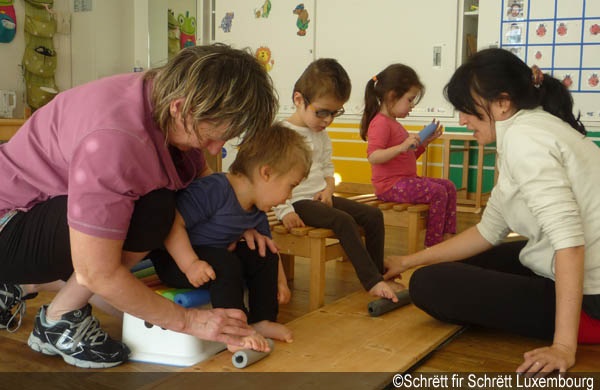
The Schrëtt fir Schrëtt non-profit organisation has managed to rally 2,651 signatures of support for its online campaign calling for disabled children and those with specific needs to have free choice of their education system according to their situation.
The petition, submitted to the Chamber of Deputies in late January 2016 by Marguerite Wagner, claimed that the Act of 2003 concerning the relationship between state and private education is, in its exclusion of the disability sector, in contradiction with Luxembourg's ratification of the UN Convention on the Rights of Persons with Disabilities with upholds the fundamental rights of disabled people to be treated like any other.
Ms. Wagner therefore called for an amendment of the Act, which would subsequently ensure the right for disabled people to select their education system, as is allocated to all other children.
In stating her case, the petitioner drew on her own experience involved in Schrëtt fir Schrëtt, an organisation established in 1996 to establish Petö, the Hungarian-borne specific educational and rehabilitative system, here in the Grand Duchy. Ms. Wagner explained that it was unrealistic to expect children with a severe or with multiple disabilities to be part of a primary school class, as they require "a different learning pace, other stimuli, a different care plan, encompassing the academic side, but also the re-educational side, with social care and acts of support every day".
The petition's author went on to claim that although the system she proposed, established by Hungarian physician Andras Peto, has not been questioned by authorities, the government has yet to provide a legal basis to the school structure, indicating that there is no legel framework for the establishment of private schools for children with special needs.
"We believe it is time to guarantee families concerned the right to choose the proper education of their children with special needs," the petition stated. "Their whole life depends on it".
The petition has so far been signed over than 2,600 times, indicating that it is more than halfway to reaching the 4,500 required for the matter to be discussed in Parliament.
If you wish to sign the petition, click here.
Photo by Schrëtt fir Schrëtt Luxembourg








